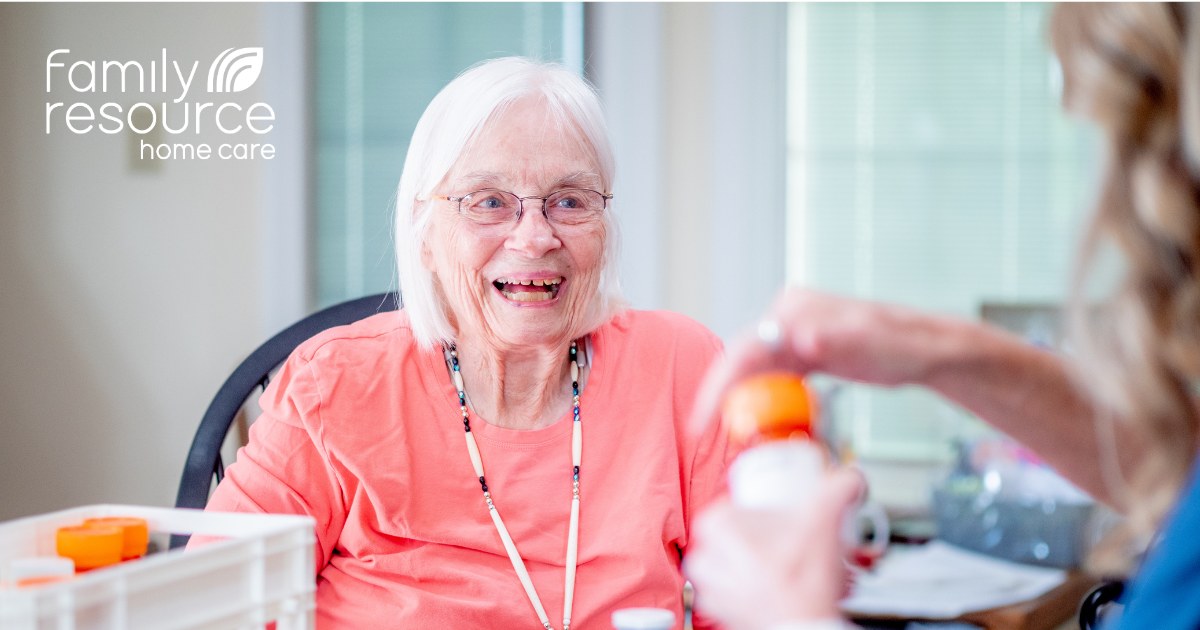Understanding the intricate relationship between medications and dietary choices is crucial, especially for the elderly and their caregivers. While prescriptions aim to enhance health and well-being, there are specific foods that don’t mix with prescriptions due to potential interactions that can compromise medication effectiveness or lead to harmful side effects. In this blog post, we’ll delve into the importance of recognizing these food-drug interactions and offer practical advice for safe and effective medication management.
The Importance of Recognizing Foods That Don’t Mix with Prescriptions
Food-drug interactions can significantly impact the absorption, metabolism, and efficacy of medications, posing potential health risks. Some foods can interfere with the body’s ability to absorb medications properly, while others may alter their effects, leading to under or overdosing scenarios. Recognizing and avoiding foods that don’t mix with prescriptions is essential for maintaining optimal health and ensuring the safe and effective use of medications.
Notable Food-Drug Interactions to Be Aware Of
Grapefruit and Statins
Grapefruit is notorious for its interactions with certain medications, particularly statins like atorvastatin and simvastatin. Consuming grapefruit can inhibit an enzyme responsible for metabolizing these drugs, resulting in elevated drug levels in the bloodstream. This can intensify the medication’s effects and increase the risk of side effects such as muscle pain or liver damage.
Dairy Products and Antibiotics
Dairy products, including milk and cheese, can interfere with the absorption of specific antibiotics like tetracycline and ciprofloxacin. The calcium in dairy binds to these medications, hindering their proper absorption into the bloodstream. To mitigate reduced antibiotic effectiveness, it’s advisable to take these medications at least one hour before or two hours after consuming dairy products.
Leafy Greens and Blood Thinners
Green leafy vegetables like kale, spinach, and broccoli are rich in vitamin K, which can counteract the effects of blood-thinning medications such as warfarin. Vitamin K promotes blood clotting, potentially diminishing the medication’s effectiveness and increasing the risk of blood clots. Individuals on blood thinners should maintain consistent vitamin K intake and consult their healthcare provider for appropriate dosage adjustments.
Caffeine and Bronchodilators
Caffeine is a widely consumed stimulant found in coffee, tea, and certain medications. When consumed in excess, caffeine can potentially interfere with bronchodilators, medications commonly used to treat asthma and chronic obstructive pulmonary disease (COPD). Caffeine can amplify the stimulant effects, leading to increased heart rate and blood pressure, which may counteract the bronchodilator’s intended therapeutic effects. It’s advisable to moderate caffeine intake and consult with a healthcare provider or pharmacist about potential interactions and appropriate caffeine consumption levels when taking bronchodilators.
Licorice and Heart Medicines/Blood Pressure Medicines
Licorice root is a natural herb commonly used in teas, candies, and herbal supplements. However, licorice contains glycyrrhizin, a compound that can lower potassium levels in the body and increase blood pressure when consumed in large quantities. This can potentially counteract the effects of heart medicines and blood pressure medications, leading to imbalances and increased cardiovascular risks. Individuals taking heart medicines or blood pressure medications should limit their licorice consumption and consult with their healthcare provider for personalized dietary guidance to ensure optimal medication effectiveness and safety.
Fruit Juice and Some Blood Pressure/Antihistamines
While fruit juice is often perceived as a healthy beverage choice, it can interact with certain medications, particularly blood pressure medications and antihistamines. Grapefruit juice, in particular, contains compounds that can interfere with the metabolism of these medications, leading to elevated drug levels in the bloodstream and potential side effects. It’s essential to be cautious when consuming fruit juices and consult with a healthcare provider or pharmacist to identify specific interactions and receive personalized dietary recommendations to ensure safe and effective medication management.
High Fiber Foods and Levothyroxine/Digoxin
High fiber foods, such as whole grains, legumes, and certain fruits and vegetables, can interfere with the absorption of medications like levothyroxine and digoxin. Fiber can bind to these medications in the digestive tract, reducing their absorption into the bloodstream and diminishing their therapeutic effects. To optimize medication effectiveness, it’s advisable to separate high fiber food consumption from medication intake by at least a few hours. Consulting with a healthcare provider or pharmacist for personalized dietary guidelines and appropriate timing of medication and high fiber food consumption is crucial to ensure optimal therapeutic outcomes.
Alcohol and Many Different Medicines
Alcohol is a commonly consumed substance that can interact with a wide range of medications, including pain relievers, sedatives, antidepressants, and many more. Alcohol can amplify or reduce the effects of these medications, leading to increased sedation, impaired cognitive function, and potential liver damage. It’s essential to exercise caution and moderation when consuming alcohol, especially when taking multiple medications. Consultation with a healthcare provider or pharmacist is crucial to identify potential alcohol-medication interactions, receive personalized recommendations for safe alcohol consumption levels, and ensure optimal medication effectiveness and overall health and well-being.
Practical Tips for Safe Medication Management
Consult Healthcare Providers for Guidance
Before making any significant changes to your diet or medication regimen, always consult with a healthcare provider or pharmacist. They can offer personalized advice tailored to your health condition, medication list, and dietary habits to help you avoid foods that don’t mix with prescriptions and potential interactions.
Read Food Labels and Medication Instructions Thoroughly
Carefully review food labels and medication instructions for any warnings or guidelines regarding food-drug interactions. Some medications may come with specific dietary restrictions to ensure optimal effectiveness and safety, so it’s crucial to be aware and adhere to them accordingly.
Maintain a Detailed Medication and Food Diary
Keeping a comprehensive medication and food diary can aid in tracking potential interactions or side effects. Record the timing of medication intake, meals, and any symptoms experienced to share with your healthcare provider during regular check-ups, facilitating better monitoring and adjustment of your medication regimen.
Educate Caregivers and Family Members
For elderly individuals relying on caregivers for daily living assistance, it’s vital to educate them about the significance of avoiding foods that don’t mix with prescriptions. Provide caregivers with a list of medications, dietary restrictions, and potential food-drug interactions to ensure they can assist you safely and effectively.
Conclusion
Understanding and avoiding foods that don’t mix with prescriptions is paramount for the elderly and their caregivers to maintain optimal health and ensure safe medication management. By being aware of common food-drug interactions and adhering to practical tips for safe medication management, potential risks can be minimized, and overall health and well-being can be preserved.
At Family Resource Home Care, we are committed to supporting seniors and their caregivers across Washington, Oregon, and Idaho, with over 30 locations to serve you. Our caregivers are always ready to be senior advocates, accompanying clients to doctor’s appointments in Moscow, Idaho, and providing personalized care and support to help navigate the complexities of medication management.
Always remember to consult with healthcare professionals for personalized advice and guidance tailored to your unique needs and circumstances. Stay informed, stay safe, and prioritize your health by understanding and respecting the relationship between foods and prescriptions!
Sources:
7 Foods That Don’t Mix With Prescriptions (healthgrades.com)






